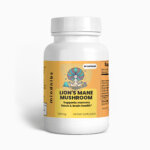
“Why Your Morning Cup of Coffee Should Be Organic”
Whether you perk up with a steaming espresso shot or savor a pour-over brew, the morning cup of coffee ritual is an integral part of many people’s daily routine. However, have you ever thought about the health and environmental impacts of your coffee beans? In recent years, organic coffee has gained popularity and for a good reason. With the countless benefits associated with organic farming, choosing organic coffee can be an easy way to help yourself and the planet. In this article, we will explore why your morning cup of coffee should be organic and the reasons behind it. So, grab your mug of joe and read on to discover why making the switch to organic coffee is worth it.
1. What Is Organic Coffee?
Organic coffee is coffee that is grown without the use of synthetic fertilizers, pesticides, or other harmful chemicals. This type of coffee is grown in environmentally sustainable ways and promotes healthier soil, water, and air. When you choose to drink organic coffee, you are supporting farmers who prioritize the health of their workers, communities, and the earth.
One key benefit of organic coffee is that it is free from harmful chemicals. This means that you can enjoy a great tasting cup of coffee without worrying about ingesting dangerous residues that are often found in conventionally-grown coffee. Additionally, organic coffee is often grown in a way that promotes biodiversity and ecological balance, which can lead to healthier ecosystems and more resilient plant and animal populations.
Another benefit of organic coffee is that it supports small-scale farmers and communities. Many large coffee plantations rely on harmful chemicals and monoculture farming, which can be damaging to local ecosystems and economies. By choosing organic coffee, you are supporting farmers who are dedicated to sustainable farming practices and are often part of cooperative organizations that prioritize fair prices and working conditions. So next time you grab a cup of coffee, consider choosing organic – it’s not just better for your health, but for the environment and local communities as well.
2. The Benefits of Choosing Organic Coffee
If you’re a coffee lover who seeks the best quality in your cup, you might want to consider choosing organic coffee instead of conventional coffee beans. Organic coffee is grown without synthetic fertilizers, pesticides, or herbicides, which means it’s better for your health, the environment, and the farmers who produce it. Here are some of the benefits that make organic coffee a smarter choice:
- Better for your health: Organic coffee doesn’t contain residual chemicals, which makes it safer for you to drink, especially if you have sensitivities or allergies to synthetic additives. Additionally, organic coffee beans are often roasted in small batches, which preserves their natural flavors and aromas. This means you’ll get a more authentic coffee experience, without any artificial or processed tastes.
- Better for the environment: By choosing organic coffee, you’re supporting sustainable farming practices that prioritize soil fertility, biodiversity, and conservation. Organic coffee farmers usually rely on composting, crop rotation, and natural pest control methods to grow their crops, which reduces the pollution and waste associated with conventional agriculture practices. As a result, consuming organic coffee helps reduce your carbon footprint and promotes a healthier planet.
- Better for the farmers: Organic coffee farming is often associated with fair trade practices, which means farmers receive a fair wage for their labor and have access to social benefits and education programs. By buying organic coffee from ethical sources, you’re contributing to the economic development and empowerment of small-scale farmers in developing countries, who often face exploitative or precarious working conditions. Your choice can make a difference in someone’s life and help build a more just and equitable coffee industry.

3. How Organic Coffee Is Grown and Processed
Organic coffee is grown using sustainable farming practices and is free from harmful chemical pesticides and fertilizers. In order to be certified organic, coffee farms must follow strict guidelines set forth by governing bodies such as the USDA or the EU. These guidelines ensure that the coffee is grown in a way that is environmentally friendly, socially responsible, and economically viable.
During the cultivation process, organic coffee farmers utilize methods such as natural pest control and composting to ensure their crops thrive without harmful chemicals. Additionally, organic coffee is typically shade-grown, which means that it is grown under a canopy of trees. This method of farming not only protects the environment by preserving the soil and supporting biodiversity, but it also produces coffee of the highest quality.
Once the organic coffee beans are harvested, they undergo a careful process to ensure that they are of the highest quality. The beans are typically washed with clean water or dry-processed to remove the outer layers of skin and pulp. After this, the beans are sorted by hand to remove any defective beans or foreign objects. The final result is a premium product that is not only good for the environment but is also delicious and full of flavor. So, consider choosing organic coffee for your next cup to support sustainable agriculture and enjoy a tastier cup of coffee!
4. The Harmful Effects of Non-Organic Coffee on the Environment
Non-organic coffee is a major environmental hazard. Here are three reasons why:
- Pesticides – Non-organic coffee is treated with synthetic pesticides that are harmful to the environment. These chemicals not only damage the coffee plants and soil, but also contaminate the nearby water bodies and kill the aquatic life.
- Deforestation – Non-organic coffee plantations can contribute to deforestation, which leads to habitat loss and soil erosion. The clearing of forests to make way for coffee plantations is often followed by the use of chemical fertilizers and pesticides, further damaging the environment.
- Carbon footprint – Most non-organic coffee is not shade-grown, which requires cutting down trees to make way for the coffee plants. This results in more carbon emissions, contributing to global warming. Additionally, non-organic coffee may be transported over long distances, resulting in more carbon dioxide emissions.
By choosing organic coffee, you can make a difference. Organic coffee is grown without synthetic pesticides or fertilizers, using sustainable farming practices that protect the environment. Additionally, organic coffee is shade-grown, which helps keep the soil healthy, conserves biodiversity, and reduces carbon emissions. You can contribute to a safer and healthier planet simply by choosing organic coffee.

5. The Health Benefits of Organic Coffee
It’s no secret that coffee is one of the most popular drinks worldwide, and its benefits are well-known. But did you know that organic coffee is even better for you? Here are some of the health benefits of consuming organic coffee.
- High in Antioxidants: Organic coffee is rich in antioxidants such as polyphenols, which can help protect your cells from damage caused by free radicals.
- Improves Physical Performance: Drinking organic coffee before your workout can help you improve your performance by increasing your energy levels and making you feel less tired.
- May Help Reduce the Risk of Chronic Diseases: Studies have shown that regular consumption of organic coffee may reduce the risk of chronic diseases such as type 2 diabetes, Parkinson’s disease, liver cancer, and heart disease.
Organic coffee is grown without the use of synthetic fertilizers, pesticides, or other harmful chemicals. This means that it is free from potentially harmful substances that can be found in conventionally grown coffee. In addition to the health benefits mentioned above, shifting to organic coffee can help ensure that you are not consuming any potentially harmful chemicals.
Overall, choosing organic coffee can be a healthy and conscious decision that can help you reap several health benefits. Make sure to choose a reputable brand that uses only organic coffee beans and enjoy all the benefits it has to offer.
6. The Ethical Implications of Choosing Organic Coffee
Organic coffee provides a myriad of health benefits, including high nutrient content, reduced risk of chronic illnesses, and critical support to the immune system. However, the decision to choose fair trade organic coffee has more than just health implications. Given the reliance of local livelihoods on organic coffee, consumers must consider ethics and morality when making purchase decisions. Here are several ethical reasons why choosing organic coffee is the right choice:
- Environmental sustainability: The use of synthetic fertilizers and pesticides in conventional coffee farming practices has a detrimental effect on the environment, contributing to soil degradation, deforestation, and water pollution. In contrast, organic farming fosters ecological sustainability by insisting on the use of ecologically sound and regenerative agriculture that maintains soil life and biodiversity.
- Social responsibility: Choosing organic coffee supports social justice efforts in developing countries. Fair trade organic coffee is grown on small-scale coffee farms, where the coffee is often harvested by impoverished labor. Paying a fair price guarantees that coffee producers have equal access to the benefits of trade, thereby promoting economic equality.
- Conscious consumption: Conscious consumption refers to making purchase decisions with the understanding of the direct and indirect effects these decisions have on the environment and society. In general, fair trade organic goods consume fewer resources, promote sustainable farming practices, and ensure living wages for farmers. Choosing fair trade and organic coffee promotes a sustainable system of trade that positively impacts not just the lives of farmers but also the environment and our planet.
In conclusion, the choice to consume organic coffee goes beyond the health benefits and taste; it is also a choice for environmental and social sustainability. By choosing to buy organic coffee, you are supporting the livelihood of small-scale coffee farmers and helping protect our planet. So, the next time you sip on a cup of coffee, think about the ethical implications of your choice and make the right one – choose fair trade organic coffee.
7. Making the Switch to Organic Coffee: Where to Find It and How to Make It a Part of Your Morning Routine
Organic coffee is a perfect start for those who want to adopt a healthy lifestyle. It is rich in flavor, chemical-free, and has more health benefits compared to conventional coffee. But where can you find organic coffee, and how can you make it a part of your morning routine? Here are some tips on how to switch to organic coffee effortlessly.
One way to find organic coffee is to look for it in the right places. Local coffee shops and grocery stores are usually a good starting point. Check the label to ensure that the coffee you’re buying is certified organic by reputable organic organizations. Some popular certifications to look out for are USDA organic, Rainforest Alliance, and Fair Trade.
Now that you know where to find organic coffee, let’s talk about how you can make it a part of your morning routine. One simple solution is to invest in a reliable coffee maker. Choose one that has a built-in grinder and can brew beans directly from the bag. This way, you can have freshly brewed coffee every morning without the need for outside help. Plus, brewing your own coffee is not only convenient but also cost-effective in the long run.
Lastly, don’t forget to pair your organic coffee with eco-friendly accessories. Invest in a reusable mug or tumbler rather than using disposable cups. You can also use a stainless steel coffee filter instead of paper filters, which are wasteful. These small changes can go a long way in reducing your carbon footprint and contributing to the environment. With these tips, you can switch to organic coffee effortlessly and make it a part of your morning routine, without compromising on taste or convenience.
So, make the switch to organic coffee and you are given the assurance that you are doing right for the planet, your health, and your taste buds. You will rest assured knowing that your morning coffee is an ethical choice.

























